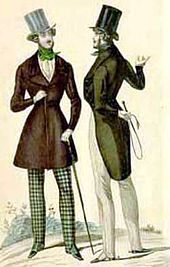By DAVID WARSH
BOSTON
Lost decades, secular stagnation -- gloomy growth prospects are in the news. To understand the outlook, better first be clear about the recent past. The nature of what happened in September five years ago is now widely understood within expert circles. There was a full-fledged systemic banking panic, the first since the bank runs of the early1930s. But this account hasn’t yet gained widespread recognition among the public. There are several reasons.
For one thing, the main event came as a surprise even to those at the Federal Reserve and Treasury Departments who battled to end it. Others required more time to figure out how desperate had been the peril.
For another, the narrative of what had happened in financial markets was eclipsed by the presidential campaign and obscured by the rhetoric that came afterwards.
Finally, the agency that did the most to save the day, the Federal Reserve Board, had no natural constituency to tout its success in saving the day except the press, which was itself pretty severely disrupted at the time.
The standard account of the financial crisis is that subprime lending did it. Originate-to-distribute, shadow banking, the repeal of Glass-Steagall, credit default swaps, Fannie and Freddie, savings glut, lax oversight, greedy bankers, blah blah blah. An enormous amount of premium journalistic shoe leather went into detailing each part of the story. And all of it was pieced together in considerable detail (though with little verve) in the final report of the Financial Crisis Inquiry Commission in 2011.
The 25-page dissent that Republican members Keith Hennessey, Douglas Holtz-Eakin and Bill Thomas appended provided a lucid and terse synopsis of the stages of the crisis that is the best reading in the book.
But even their account omitted the cardinal fact that the Bush administration was still hoping for a soft landing in the summer of 2008. Nearly everyone understood there had been a bubble in house prices, and that subprime lending was a particular problem, but the sum that all subprime mortgages outstanding in 2007 was $1 trillion, less than the market as a whole occasionally lost on a bad day, whereas the evaporation of more than $8 trillion of paper wealth in the dot-com crash a few years earlier was followed by a relatively short and mild recession.
What made September 2008 so shocking was the unanticipated panic that followed the failure of the investment banking firm of Lehman Brothers. Ordinary bank runs – the kind of things you used to see in Frank Capra films such as "American Madness" and “It’s a Wonderful Life”– had been eliminated altogether after 1933 by the creation of federal deposit insurance.
Instead, this was a stampede of money-market wholesalers, with credit intermediaries running on other credit intermediaries in a system that had become so complicated and little understood after 40 years of unbridled growth that a new name had to be coined for its unfamiliar regions: the shadow banking system – an analysis thoroughly laid out by Gary Gorton, of Yale University’s School of Management, in "Slapped by the Invisible Hand'' (Oxford, 2010).
Rather than relying on government deposit insurance, which was designed to protect individual depositors, big institutional depositors had evolved a system employing collateral – the contracts known as sale and repurchase agreements, or repo – to protect the money they had lent to other firms. And it was the run on repo that threatened to melt down the global financial system. Bernanke told the Financial Crisis Inquiry Commission:
As a scholar of the Great Depression, I honestly believe that September and October of 2008 was the worst financial crisis in global history, including the Great Depression. If you look at the firms that came under pressure in that period… only one… was not of serious risk of failure…. So out of the thirteen, thirteen of the most important financial institutions in the United State, twelve were at risk of failure within a week or two.
Had those firms begun to spiral into bankruptcy, we would have entered a decade substantially worse than the 1930s.
Instead, the emergency was understood immediately and staunched by the Fed in its traditional role of lender of last resort and by the Treasury Department under the authority Congress granted in the form of the Troubled Asset Relief Program (though the latter aid required some confusing sleight- of-hand to be put to work).
By the end of the first full week in by October, when central bankers and finance ministers meeting in Washington issued a communique declaring that no systemically important institution would be allowed to fail, the rescue was more or less complete.
Only in November and December did the best economic departments begin to piece together what had happened.
When Barack Obama was elected, he had every reason to exaggerate the difficulty he faced – beginning with quickly glossing over his predecessor’s success in dealing with the crisis in favor of dwelling on his earlier miscalculations. It’s in the nature of politics, after all, to blame the guy who went before; that’s how you get elected. Political narrative divides the world into convenient four- and eight-year segments and assumes the world begins anew with each.
So when in September Obama hired Lawrence Summers, of Harvard University, to be his principal economic strategist, squeezing out the group that had counselled him during most of the campaign, principally Austan Goolsbee, of the University of Chicago, he implicitly embraced the political narrative and cast aside the economic chronicle. The Clinton administration, in which Summers had served for eight years, eventually as Treasury secretary, thereafter would be cast is the best possible light; the Bush administration in the worst; and key economic events, such as the financial deregulation that accelerated under Clinton, and the effective response to panic that took place under Bush, were subordinated to the crisis at hand, which had to do with restoring confidence.
The deep recession and the weakened banking system that Obama and his team inherited was serious business. At the beginning of 2008, Bush chief economist Edward Lazear had forecast that unemployment wouldn’t rise above 5 percent in a mild recession. It hit 6.6 percent on the eve of the election, its highest level in 14 years. By then panic had all but halted global order-taking for a hair-raising month or two, as industrial companies waited for assurance that the banking system would not collapse.
Thus having spent most of 2008 in a mild recession, shedding around 200,000 jobs a month, the economy started serious hemorrhaging in September, losing 700,000 jobs a month in the fourth quarter of 2008 and the first quarter of 2009. After Obama’s inauguration, attention turned to stimulus and the contentious debate over the American Recovery and Reinvestment Act. Summers’s team proposed an $800 billion stimulus and predicted that it would limit unemployment to 8 percent. Instead, joblessness topped out at 10.1 percent in October 2009. But at least the recovery began in June
What might have been different if Obama had chosen to tell a different story? To simply say what had happened in the months before he took office?
Had the administration settled on a narrative of the panic and its ill effects, and compared it to the panic of 1907, the subsequent story might have been very different. In 1907, a single man, J.P. Morgan, was able to organize his fellow financiers to take a series of steps, including limiting withdrawals, after the panic spread around the country, though not soon enough to avoid turning a mild recession into a major depression that lasted more than a year. The experience led, after five years of study and lobbying, to the creation of the Federal Reserve System.
If Obama had given the Fed credit for its performance in 2008, and stressed the bipartisan leadership that quickly emerged in the emergency, the emphasis on cooperation might have continued. If he had lobbied for “compensatory spending” (the term preferred in Chicago) instead of “stimulus,” the congressional debate might have been less acrimonious. And had he acknowledged the wholly unexpected nature of the threat that had been turn aside, instead of asserting a degree of mastery of the situation that his advisers did not possess, his administration might have gained more patience from the electorate in Ccngressional elections of 2010. Instead, the administration settled on the metaphor of the Great Depression and invited comparisons to the New Deal at every turn – except for one. Unlike Franklin Delano Roosevelt, Obama made no memorable speeches explaining events as he went along.
Not long after he left the White House, Summers explained his thinking in a conversation with Martin Wolf, of the Financial Times, before a meeting of the Institute for New Economic Thinking at Bretton Woods. N.H. He described the economic doctrines he had found useful in seeking to restore broad-based economic growth, in saving the auto companies from bankruptcy and considering the possibility of restructuring the banks (the government owned substantial positions in several of them through TARP when Obama took over). But there was no discussion of the nature of the shock the economy had received the autumn before he took office, and though he mentioned prominently Walter Bagehot, Hyman Minsky and Charles P. Kindleberger, all classic scholars of bank runs, the word panic never came up.
On the other hand, the parallel to the Panic of 1907 surfaced last month in a pointed speech by Bernanke himself to a research conference of the International Monetary Fund. The two crises shared many aspects, Bernanke noted: a weakening economy, an identifiable trigger, recent changes in the banking system that were little-understood and still less well-regulated, sharp declines in interbank lending as a cascade of asset “fire sales” began. And the same tools that the Fed employed to combat the crises in 2008 were those that Morgan had wielded in some degree a hundred years before – generous lending to troubled banks (liquidity provision, in banker-speak), balance-sheet strengthening (TARP-aid), and public disclosure of the condition of financial firms (stress tests). But Bernanke was once again eclipsed by Summers, who on the same program praised the Fed’s depression-prevention but announced that he had become concerned with “secular stagnation.”
The best what-the-profession-thinks post-mortem we have as yet is the result of a day-long conference last summer at the National Bureau of Economic Research. The conference observed the hundredth anniversary of the founding of the Fed. An all-star cast turned out, including former Fed chairman Paul Volcker and Bernanke (though neither historian of the Fed Allan Meltzer, of Carnegie Mellon University, or Fed critic John Taylor, of Stanford University, was invited). Gorton, of Yale, with Andrew Metrick, also of Yale, wrote on the Fed as regulator and lender of last resort. Julio Rotemberg, of Harvard Business School, wrote on the goals of monetary policy. Ricardo Reis, of Columbia University, wrote on central bank independence. It is not clear who made the decision to close the meeting, but the press was excluded from this remarkable event. The papers appear in the current issue of the Journal of Economic Perspectives.
It won’t be easy to tone down the extreme political partisanship of the years between 1992 and 2009 in order to provide a more persuasive narrative of the crisis and its implications for the future – for instance, to get people to understand that George W. Bush was one of the heroes of the crisis. Despite the cavalier behavior of the first six years of his presidency, his last two years in office were pretty good – especially the appointment of Bernanke and Treasury Secretary Henry Paulson. Bush clearly shares credit with Obama for a splendid instance of cooperation in the autumn of 2008. (Bush, Obama and John McCain met in the White House on Sept. 25, at the insistence of Sen. John McCain, in the interval before the House of Representatives relented and agreed to pass the TARP bill. Obama dominated the conversation, Bush was impressed, and, by most accounts, McCain made a fool of himself.)
The fifth anniversary retrospectives that appeared in the press in September were disappointing. Only Bloomberg BusinessWeek made a start, with its documentary “Hank,” referring to Paulson. The better story, however, should be called “Ben.” Perhaps the next station on the way to a better understanding will be the appearance of Timothy Geithner’s book, with Michael Grunwald, of Time magazine, currently scheduled to appear in May. There is a long way to go before this story enters the history books and the economics texts.
David Warsh is proprietor of www.economicprincipals.com, economic historian and along-time financial journalist. He was also a long-ago colleague of Robert Whitcomb.




